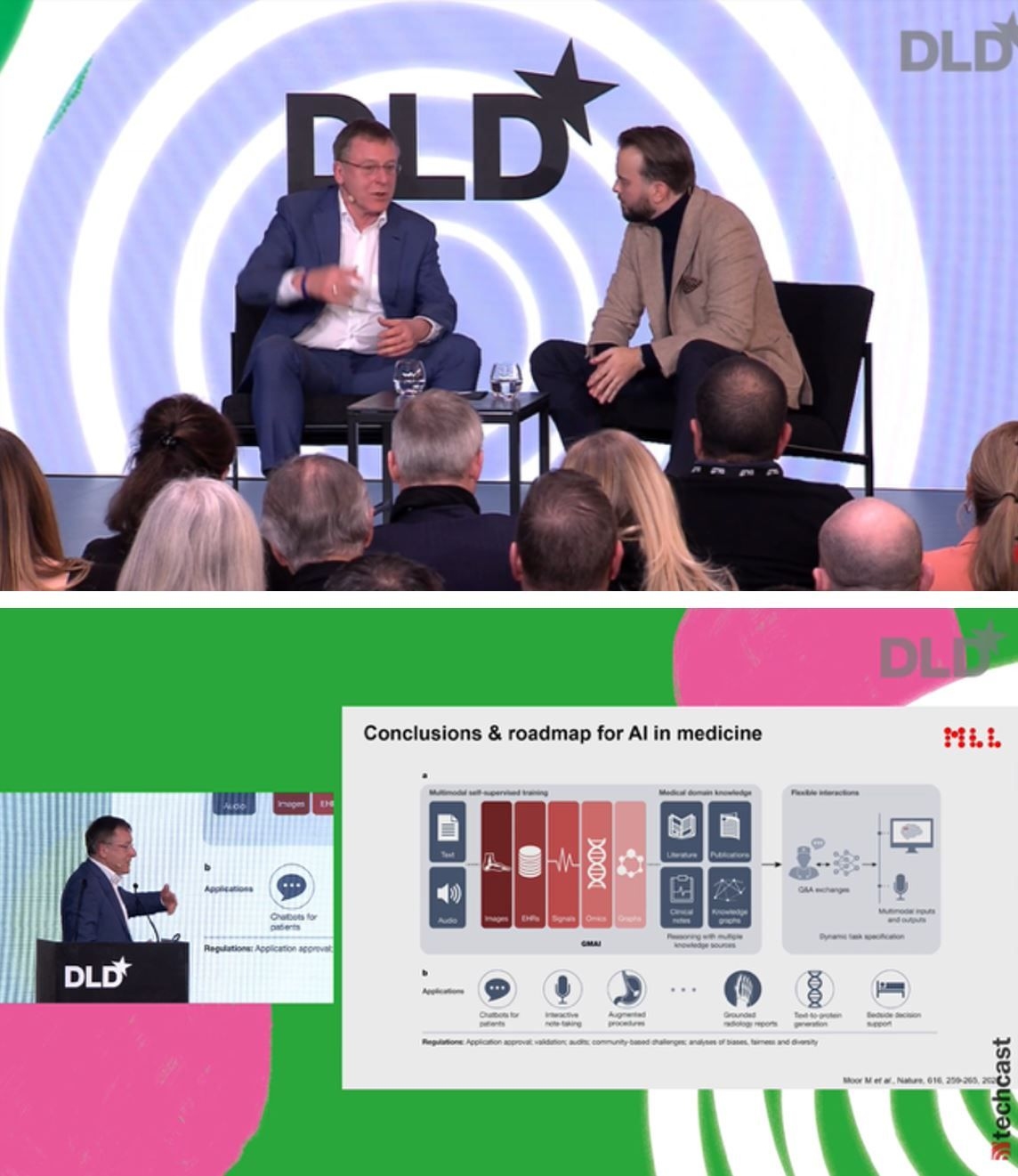"Fighting Cancer with AI" - Artificial intelligence in the fight against cancer
[Press release]
Prof. Torsten Haferlach: "Medicine is facing the next revolution when processes, diagnostics and treatment are increasingly supported by AI. Staff can be relieved and the quality of diagnoses and treatment options optimized. However, the framework conditions must be right. In view of the data protection vs. patient protection debate, we need to reduce innovation-inhibiting hurdles in the use of data for research if we want to create a sustainably networked healthcare data infrastructure."
(Video recording of the DLD Munich 2024 session)
Munich, 13.01.2024 - "In medicine in general and also in hematology, artificial intelligence is not a gadget, but a game changer," explained MLL Managing Director Prof. Dr. med. Torsten Haferlach at DLD Munich 2024, one of the leading European conferences for innovation and technology, in Munich in mid-January. As a proven expert in the use of AI in medical diagnostics and therapy, he presented a session on how AI and big data methods can already be used responsibly in the targeted fight against cancer, and which trends in automated diagnoses and the use of chatbots in medicine can bring benefits for patients. "Medicine is on the brink of the next revolution when processes, diagnostics and treatment are increasingly supported by AI. Staff can be relieved and the quality of diagnoses and treatment options optimized."
Haferlach added: "At MLL, we are always striving for the gold standard in leukemia treatment. The use of AI offers numerous advantages here, simply due to the sheer volume of diagnostic data, for example when we use AI to search for similarities in the genetic make-up of patients that allow us to draw conclusions about the causes of the disease - the basis for customized, patient-oriented therapies." Haferlach expanded on the topic in the subsequent talk with entrepreneur and investor Sebastian Kuss and emphasized that AI is simply indispensable in modern diagnostic and therapeutic everyday healthcare and that digitalization must quickly find its way into the entire healthcare system. "Networking and interdisciplinarity are key factors. We use machine learning as well as deep learning methods, i.e. neural networks. Here at MLL, haematologists, molecular geneticists, bioinformaticians and other experts work hand in hand with the latest technological possibilities to continuously optimize diagnosis, reporting and treatments for patients."
Framework conditions must be right
"The future-oriented further development of all framework conditions, the development of suitable hardware and software infrastructures and the removal of regulatory barriers is crucial, because reality is actually already further along: AI and big data are already delivering concrete results in the responsible medical use of patient-oriented optimization of diagnoses, methods and therapies. Transatlantic data exchange for research purposes is practiced in a data protection-sensitive manner. Networked, personalized care for patients generates real added value. In short, the application of forward-looking innovations will be decisive for the success of modern medical care." The Interim Report 'Governing AI for Humanity' by the United Nations High Level Advisory Body on AI was recently published. It calls for closer coordination of international standards for the development and establishment of AI. The MLL Munich Leukemia Laboratory appreciates this important step at international governance level, similar to the ambitions of the Health Data Use Act and the AI Act at national and European level, but Haferlach warns: "In view of the data protection vs. patient protection debate, it is always important to reduce innovation-inhibiting hurdles in data use for both academic and non-university research, but also for research-based healthcare companies, if we want to create a sustainably networked health data infrastructure."
>> The full recording of the session:
